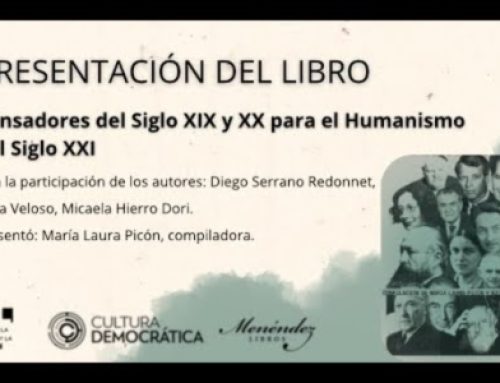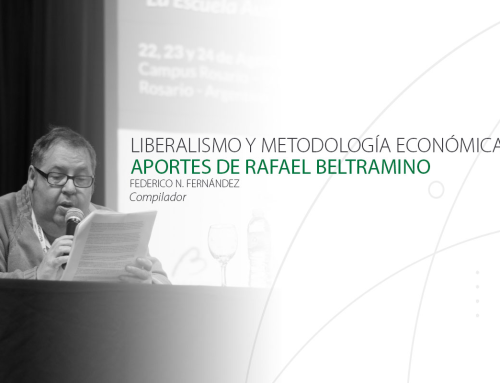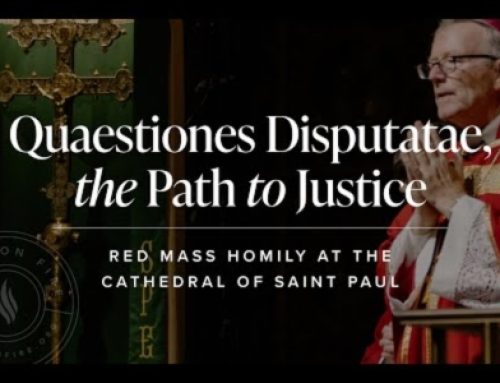Por Samuel Gregg
11 de julio de 2016
Fuente: Catholic World Report
Catholicism and Global Institutions: It’s Time for a Rethink
“Brexit” underscores that the Catholic Church’s present approach to international political organizations requires modification, if not a complete overhaul.
One of the less-noticed statistics to emerge from one of the most thorough post-Brexit surveys is that nearly sixty percent of self-identified British Christians voted for Brexit. The survey doesn’t distinguish between different Christian confessions. Nor does it ask if such people’s faith played any particular role in their decision or even their lives more generally. Nonetheless the fact that a majority of Christians voted for Britain to leave one of the world’s most prominent supranational entities will surprise some people. Christian statesmen, after all, played a major role in establishing today’s European Union. In the lead-up to the referendum, Britain’s most prominent Christian leaders—Cardinals Cormac Murphy-O’Connor and Vincent Nichols, the Anglican Primate, Justin Welby, and the Church of Scotland’s Moderator, the Rev. Angus Morrison—affirmed that they personally favored “Remain.” Likewise the Holy See’s Secretary for Relations with States, the Liverpool-born Archbishop Paul Gallagher, expressed a preference for Britain remaining in the EU.
Reading Murphy-O’Connor and Nichols’ respective statements, however, neither’s endorsement was especially enthusiastic. Nor did any of the figures mentioned above claim that Christians were somehow obliged to vote “Remain.” The Catholic Bishops Conference of England and Wales pre-referendum statement on Brexit pointedly refrained from advocating either “Remain” or “Leave.” There’s even some suggestion that particular bishops were personally unconvinced by “Remain” arguments. While the bishops’ statement reminded Catholics that the EU project had been partly conceived to promote peace in a once war-torn continent, it also acknowledged “the justifiable concerns that many people have in relation to the European Union, its institutions and the implications of increasing integration.”
This last point may reflect some bishops’ awareness that many Catholics have increasingly negative views of supranational institutions and don’t believe that the Church should instinctively favor any growth in their powers. But even leaving aside the many policies promoted by, for instance, particular United Nations agencies which directly violate Catholic teaching on human life, there are many good reasons for the Church to be more circumspect about supranational bodies.
Why global institutions?
Back in 2011, a document produced by the Pontifical Council for Justice and Peace urged the establishment of a global financial authority which would somehow take responsibility for regulating the world’s financial systems. The 2008 financial crisis, the text argued, pointed to “an emerging requirement for a body that will carry out the functions of a kind of ‘central world bank’ that regulates the flow and system of monetary exchanges, as do the national central banks.” The document premised this claim upon a range of papal statements dating back to Saint John XXIII. These maintain that an increasingly interconnected globe requires a world authority to assume some responsibility for truly global matters.
The basic Catholic argument for an international authority may be summarized as follows. A given community’s common good—understood as that set of conditions which facilitate human flourishing—necessitates an authority to make laws for that community. Thus a town needs a city council to issue rules that bind all members of the city. Likewise, a nation requires some type of national government. If, then, one can speak of an international community, some type of commensurate authority is necessary.
The roots of this reasoning lie in natural law theory and have been outlined by contemporary Catholic natural law thinkers who no-one would consider political or theological progressives. At the same time, they—like papal teaching—have been careful not to specify which powers should be assumed by any such authority, or even who these authorities might be. They have also maintained that any such authority should be limited by the principle of subsidiarity.
Subsidiarity combines two axioms. One is “assistance:” the role of higher authority (say, a world authority) is to assist (from the Latin “to help” subsidere) rather than usurp the ability of lower authorities (say, a national government) to fulfill their necessary functions. A second might be described as “decentralization:” decisions regarding a given problem should be made as far as possible by the community closet to the difficulty.
This schema, however, has its limits. People will have legitimately different views on when assistance has become necessary, the precise form it should take, and when assistance has degenerated into usurpation. It’s also the case that those who imagine that large administrative states can resolve most problems often emphasize subsidiarity’s assistance axiom over decentralization.
Article 5(3) of the Treaty on European Union, for instance, defines subsidiarity as how the EU determines “the circumstances in which it is preferable for action to be taken by the Union, rather than the Member States.” Note that the emphasis is upon identifying the conditions in which EU authorities may act rather than limiting their powers. Keep in mind also that a major criticism of the EU voiced by pro-Brexit campaigners was the manner in which directives promulgated by EU bodies were rapidly supplanting British laws. This suggests that decentralization isn’t a priority for many EU officials.
Patriotism versus Secular Internationalism
Beyond the challenges in applying subsidiarity, Catholics should also be concerned about the present-day ethos of international political bureaucracies. Few would suggest they reflect a Judeo-Christian vision of man, let alone robust natural law claims. Rather, they embody the liberal internationalism proposed by Immanuel Kant in his 1795 essay, “Perpetual Peace: A Philosophical Sketch.” This argued for a league of peace (foedus pacificum) which would have “a supreme legislative, executive, and judiciary power” charged with peacefully reconciling national differences.
Similar transnational ambitions characterized President Woodrow Wilson’s progressivism and his League of Nations project. Today, such thinking manifests itself in endeavors to concretize top-down international governance through supranational political bodies which tend to be populated by individuals whose philosophical lodestones are Kant’s secular liberal heirs such as the late John Rawls. In these circles, notions of national sovereignty are often regarded as passé, if not downright dangerous.
The Catholic Church’s own relationship with the modern nation-state hasn’t always been a happy one. Henry VIII’s efforts to strengthen the English state, for instance, contributed to the looting of Church property and the judicial murder of Catholics who refused to formally abjure their commitment to Rome. One reason why eighteenth-century absolutist Catholic monarchs successfully pressured the papacy into suppressing the Jesuit order in 1773 was their advisors’ belief that the Jesuits’ strong support of papal authority was incompatible with consolidating nation-states. In the nineteenth century, nationalism’s rise throughout Europe often went hand-in-hand with the promotion of government-enforced anti-Catholicism, such as Otto von Bismarck’s Kulturkampf against the Catholic Church in Germany.
Nationalism and patriotism, however, aren’t necessarily the same thing. Some forms of nationalism have been characterized by state-worship, a disinterest in other nations’ well-being and, in extreme cases, denigration, conquest or even destruction of other countries. This was exemplified by those German nationalists whose attachment to national identity was inseparable from their racist contempt for many other nationalities and their genocidal attitude towards the Jewish people.
Patriotism, however, expresses something different. Derived from the Latin pietas, Aquinas described patriotism as a virtue which embraces respect and thankfulness towards our parents and country. Leo XIII even stated that “The natural law enjoins us to love devotedly and to defend the country in which we had birth, and in which we were brought up, so that every good citizen hesitates not to face death for his native land.” This sense of belonging and gratitude doesn’t entail negative views of other nations or particular religions. There’s nothing incongruous about being a faithful Christian and an American, French, or Lebanese patriot. Patriotism doesn’t deny that there are universal truths which all people, regardless of nationality, can know through the universal gift of reason. Nor does patriotism lead to the conclusion that a nation should be hostile towards the free movement of persons, capital, and goods between countries.
By contrast, the Kantian liberal internationalism which characterizes most supranational institutions seeks not only to dilute national sovereignty but even national identity. As the French political philosopher and member of the Académie catholique de France Pierre Manent has observed, today’s European integration project seeks to replace historical-rootedness with what he calls “pretended realities.” Europe is thus no longer understood as a group of historically-distinct nations with even deeper origins in Christianity, Judaism, and the Greco-Roman world. Rather, Manent notes, Europe’s elites regard Europe as “as a ‘nothing,’ a space empty of anything common, or at most as a ‘culture’ that is neither religious nor national in character,” and “an abstract social space where the sole principle of legitimacy now resides in human rights, understood as the unlimited rights of individual particularity.”
The Top-Down Problem
Such secular internationalist views are hard to reconcile with Catholicism’s positive view of patriotism and the value it attaches to the nation. But even if supranational bodies were purged of Kantian liberals bent on dissolving national sovereignty and attachments, they would remain crippled by what might be described as problems of scale—a practical difficulty to which some Catholics seem oblivious.
Take, for example, the Pontifical Council for Justice and Peace’s advocacy of a global central bank. Europe’s ongoing financial crises have illustrated the problems associated with supranational institutions like the European Central Bank trying to set a one-size-fits-all interest-rate for economies as different as Greece and Germany. It is simplyimpossible for any one individual or group to know the optimal interest-rate at any given time for every Eurozone country. The same would be true of a world central bank trying to set an official interest-rate for economies as dissimilar as Burkina Faso, Cambodia, and Russia.
Failure to recognize such truths is exacerbated by supranational officials’ insistence that the way to resolve their institutions’ problems is to give them more power. In his September 2015 State of the Union address, the European Commission’s President, Jean-Claude Juncker, listed the EU’s many challenges, ranging from migration to bankrupt member-states. Juncker insisted, however, no less than six times that the solution was “more Europe.” That’s euro-code for more top-down centralization. Words like federalism, decentralization, devolution, and subsidiarity don’t appear in the text. Thus far, there’s no sign that Brexit has caused any fundamental change of mindset in EU officialdom. It’s still “more Europe.”
Supranational institutions aren’t inherently bad entities. Sometimes temporary international organizations are needed to address particular situations. The international military tribunals which operated from 1945-1948 to judge German and Japanese war criminals are one example. Likewise, good cases can be made for international political forums in which nations can try and resolve their differences peacefully. Such exercises remind us, as the Dominican theologian Bartolomé de las Casas insisted 500 years ago when defending the Native American peoples from colonial exploitation, that “all mankind is one.”
The issue today, however, is whether the Catholic Church will substantially engage some of the major problems with supranational organizations highlighted by Brexit. It certainly has the resources to do so. Catholicism has a distinguished history of thinking through international relations questions. Figures such as Francisco de Vitoria OP and Francisco Suárez SJ have good claim to being the founders of modern international law. Yet any renewed, even critical reflection about global institutions by the Church assumes that those responsible for shaping official Catholic contributions to these matters (1) want to be more than religious cheerleaders for the Kantian internationalist agenda and (2) are therefore willing to bring the full richness of Catholicism’s centuries-old reflection to bear on such issues.
On such subjects, I fear, the jury presently seems to be out.





Deja tu comentario